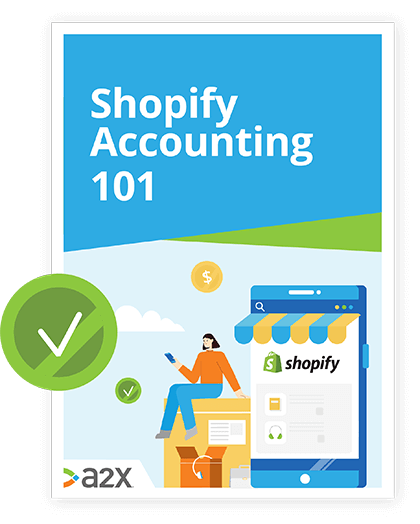
Accounting for Facebook Shops with A2X for Shopify
Learn how A2X can integrate with Facebook Shops in order to give you automated and accurate accouting for your business.
There’s no other digital marketing opportunity quite like social media. It’s one of the easiest ways to spread the word about your brand, engage potential local and international customers – and ultimately grow your e-commerce business.
Facebook has dominated the social media market for a decade. Not only is it the platform of choice for connecting with family and friends, but it’s also the go-to marketing tool for most business owners. It has an estimated 60 million active Business Pages sharing their products and brands.
From its powerful advertisement options to Facebook groups, the social media platform has many tools e-commerce businesses can and should use. A new addition is Facebook Shops – a collaboration that brings the relationship between social media and e-commerce even closer.
For years, people have used Facebook to buy and sell things, and that’s why we’ve seen the rise of social commerce. In this article, we’ll look at Facebook Shops and how they can help you provide a more seamless shopping experience for your customers.
Creating a digital storefront for Facebook
Before e-commerce, the only way to buy and sell products was through a physical store. Shopfront and window displays were important for drawing in foot traffic, and unique in-store shopping experiences were what kept customers coming back for more.
E-commerce has reduced the need for a physical store, but the fundamental rules of business still apply. It’s more important than ever to create a memorable shopping experience that brings customers back because they can so quickly find another option.
For many years, Facebook has been a super-popular way for e-commerce sellers to create brand communities and drive traffic to their online stores. Social media platforms are where many people choose to spend their time online, and they’re actively looking for content to engage with.
To make it easier for customers to shop directly from their favourite stores through Facebook, e-commerce giant Shopify has teamed up with the reigning champ of social media to bring you Facebook Shops.
Introducing Facebook Shops
Facebook Shops allow Shopify merchants to create single, custom storefronts for their customers on Facebook and Instagram. It’s a simple version of an online store that lives inside Facebook and Instagram mobile apps, making it easy for users to find, browse, and buy products in the apps they use daily.
Creating a Facebook Shop is free and simple. You can customise the colours and layout to showcase your brand and products, organise product collections into featured tiles to match the look and feel of your Shopify store, and tailor the shopping experience to suit your community of followers on each app.
Customers can find your Facebook Shop on your Business Page or Instagram profile, or discover it through stories and ads. They can browse your full collection of products, save ones they’re interested in, and place an order without leaving the app (check-out must be enabled in the US). It’s a fast and seamless shopping experience so customers quickly find – and purchase – the products they want.
Who can use Facebook Shops?
Facebook Shops aren’t available to all e-commerce store owners with a Facebook Business Page just yet. But there’s good news for Shopify sellers – you’ll be among the first to get access to the new channel.
If you’re already set up and able to use product tags on your Instagram posts, Facebook Shops will be automatically available to you shortly. Currently, Facebook Shops can be created on Instagram, with a Facebook version on its way.
If product-tagging on Instagram isn’t something you’ve used before, Facebook Shops will be available to you towards the end of the year. But that doesn’t mean you can’t prepare your Shopify store while you wait.
You can install Shopify’s new Facebook channel where you’ll manage your sales and marketing activity across the Facebook family of apps. You can sync your existing products through the channel today and customise your Facebook Shop once it’s available.
To list products on a Facebook Shop, you need to meet some requirements:
- Your store needs to list products for sale in a currency that’s supported by Facebook.
- You need a Facebook Page for your business. The Facebook Page needs to use the Shopping template.
- Your Customer Email (set in General Settings) needs to be valid.
The following requirements must be met on Facebook before you can connect your Facebook Page:
- Your Facebook account needs to have an admin role on the Page.
- The Facebook page needs to be published.
How to set up Facebook Shops
When you set up a Facebook Shop, Facebook creates a Shop section on your Facebook Business Page that displays your Shopify products.
Before you get started:
- Selling requirements. Make sure your store meets the requirements for selling on Facebook, you have a Facebook Page for your business, and you understand Facebook’s policies.
- Active Shop section. Setting up Facebook Shop removes all the products on an existing Shop section and replaces them with your Shopify products.
- Facebook review period. After you ensure your store meets the requirements, you can add Facebook Shop and connect your Facebook account. You need to wait for Facebook to review your store before you can start selling through Facebook Shop.
Set-up Facebook Shop with these seven simple steps:
- From your Shopify admin, click the + button beside the Sales channels heading.
- Click Facebook Shop, then click Add channel.
- Connect the Facebook account you want to be associated with your products by navigating to Facebook Shop > Account.
- Click Connect account. If you’re already logged in to Facebook, then confirm that you’re using the correct Facebook account. If you are not logged in, then enter your Facebook login information.
- Follow the prompts to let Shopify connect with your Facebook business page.
- Wait for Facebook to review your store – this can take up to 48 hours. You are notified by email and in Shopify when Facebook finishes the review process.
- Publish products and collections to Facebook by making them available to Facebook Shop. After you make a collection with at least one product available to Facebook Shop in Shopify, the Shop section appears on your Facebook Page.
There’s a chance that your store may be rejected during the review process. If this happens, you’ll need to get in touch with Facebook directly as all accounts, pages and products associated with Facebook Shop are subject to approval.
Integration with Shopify
Because Facebook Shops is integrated with Shopify, your products, inventory, and back-office will stay perfectly in sync with your Shopify store. This means you can run your business in one place while selling through multiple sales channels – and any tools or software you use to manage or automate your business, by extension, should still work for your Facebook Shops sales.
A2X for Shopify, Facebook Shops and your accounting system
Shopify sellers who already use A2X for Shopify can breathe a sigh of relief. A2X will also work for your Facebook Shop sales. Because of its integration with Shopify, when you sell a product through Facebook Shops, the sales data from the purchase will appear in your Shopify account. And because A2X pulls and sorts all your Shopify pay-outs (from Shopify Payments and other payment gateways), and posts these to your Xero or QuickBooks Online account as organised summaries, you’ll still have a clear and accurate view of your business financials.
By default, A2X will import Shopify Payments pay-outs which will match your deposits received from Shopify in your accounting system. The other payment gateways will be summarised into daily pay-outs (by default) and will include any orders that happened in that period.
For those Shopify sellers that don’t currently use A2X for Shopify to simplify their accounting, here’s how it works.
Seamless shopping experience, accurate accounting
With many retail stores closing because of the current economic climate, more and more people are looking to bring their businesses online. Facebook Shops have been developed with one goal in mind – to make buying and selling online easier for e-commerce sellers and their customers. It means that any sellers, whatever their size or budget, can bring their businesses online and connect with customers wherever and whenever is convenient for them. Shopify sellers will be the first to take advantage of the new sales channel, and can do so quickly while being confident back-office functions like accounting won’t be compromised.
Ready to get started with A2X for Shopify? Get started with A2X for Xero or A2X for QuickBooks Online now.
Learn how to manage your Shopify accounting the right way
If you want to scale up your Shopify business, you need reliable accounting. Discover the best tools, key tax information and how to ensure that your Shopify accounting is set up for success.
Download our free guide


